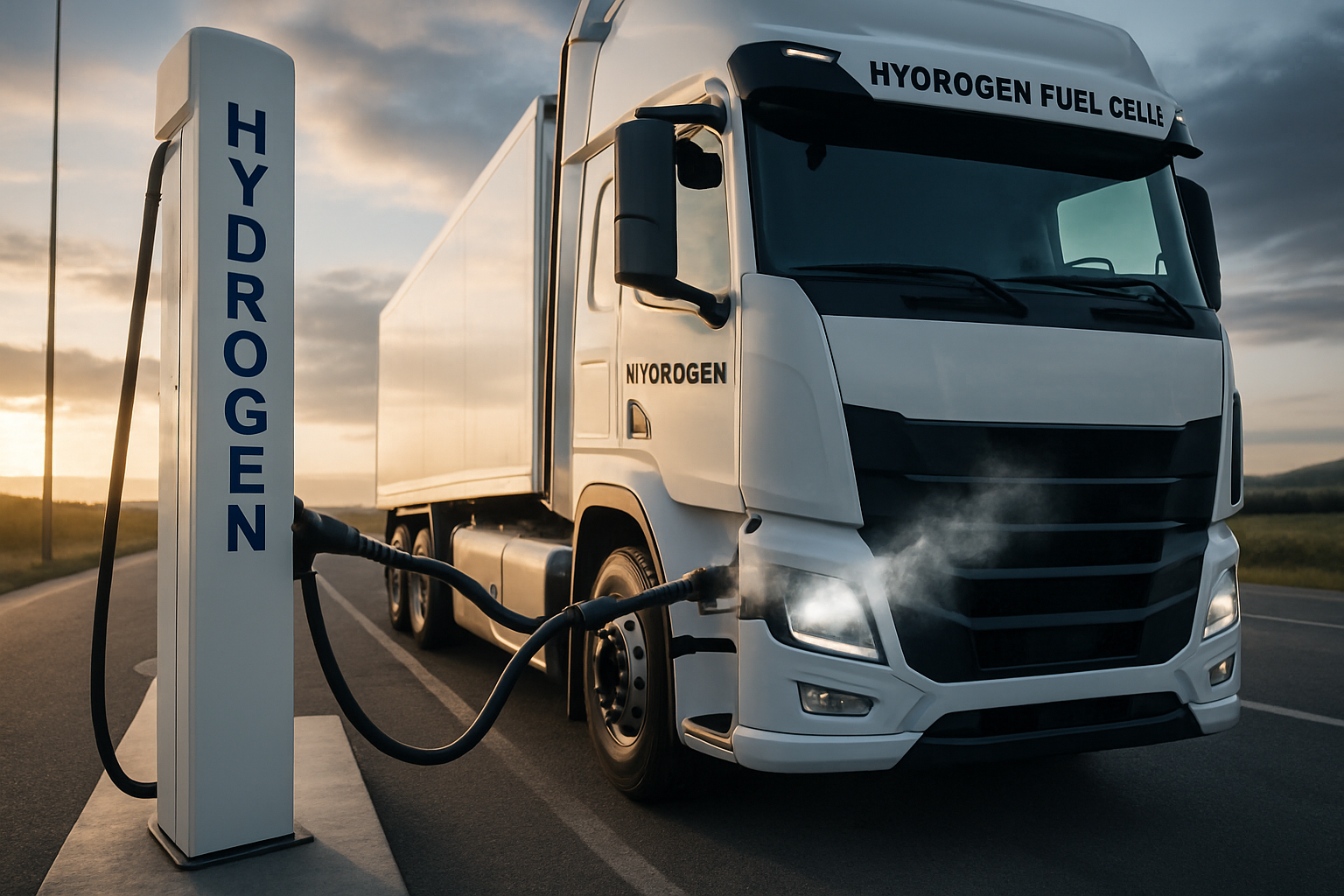Hydrogen Fuel Cells: The Quiet Revolution in Heavy-Duty Transport
The rumble of diesel engines may soon give way to the quiet hum of hydrogen fuel cells in the world of heavy-duty transport. As the trucking industry faces increasing pressure to reduce emissions, a groundbreaking solution is emerging that promises to revolutionize long-haul logistics. Hydrogen fuel cell technology is poised to transform the way goods move across continents, offering a clean, efficient, and powerful alternative to traditional fossil fuels. But what exactly are hydrogen fuel cells, and how are they set to reshape the landscape of commercial transportation?

This process is remarkably efficient, with fuel cells capable of converting up to 60% of hydrogen’s energy into electricity, compared to the 20-35% efficiency of internal combustion engines. Moreover, fuel cells have no moving parts, reducing maintenance needs and increasing reliability – crucial factors for long-haul trucking operations.
Addressing Range Anxiety in Commercial Transport
One of the most significant advantages of hydrogen fuel cells for heavy-duty vehicles is their ability to address range anxiety. Unlike battery-electric trucks, which can take hours to recharge, hydrogen-powered trucks can be refueled in minutes, much like their diesel counterparts. This rapid refueling, combined with the high energy density of hydrogen, allows for ranges comparable to diesel trucks – often exceeding 500 miles on a single fill.
This extended range is particularly crucial for long-haul operations, where downtime for refueling or recharging can significantly impact delivery schedules and operational costs. The ability to cover vast distances without frequent stops positions hydrogen as a viable solution for transcontinental shipping and logistics.
Infrastructure Development: The Key to Widespread Adoption
While the technology shows immense promise, the widespread adoption of hydrogen fuel cells in trucking faces a significant hurdle: infrastructure. The current lack of hydrogen refueling stations poses a challenge for fleet operators considering the switch. However, this is rapidly changing. Governments and private companies are investing heavily in hydrogen infrastructure, with plans to create hydrogen corridors along major trucking routes.
In Europe, the Hydrogen Mobility Europe (H2ME) project is spearheading the development of a pan-European network of hydrogen stations. Similarly, in North America, companies like Nikola Motor Company are not only developing hydrogen-powered trucks but also planning a network of hydrogen stations across the United States and Canada. These initiatives are crucial in creating the ecosystem necessary for the large-scale adoption of hydrogen fuel cell technology in heavy-duty transport.
Environmental Impact and Sustainability
The environmental benefits of hydrogen fuel cells are substantial, especially when the hydrogen is produced using renewable energy sources. When green hydrogen – produced through electrolysis powered by solar or wind energy – is used, the entire fuel cycle becomes virtually carbon-neutral. This aligns perfectly with global efforts to decarbonize the transport sector, which accounts for a significant portion of global CO2 emissions.
Moreover, the versatility of hydrogen production methods offers a path to energy independence for many regions. Countries can leverage their renewable energy resources to produce hydrogen locally, reducing reliance on imported fossil fuels and creating new economic opportunities in the process.
Challenges and Future Outlook
Despite its potential, the hydrogen fuel cell industry faces several challenges. The cost of fuel cell systems and hydrogen production remains high, though economies of scale are expected to drive prices down as adoption increases. There’s also the need for standardization in fueling protocols and infrastructure to ensure interoperability across different manufacturers and regions.
Looking ahead, the future of hydrogen fuel cells in heavy-duty transport appears bright. Major truck manufacturers are investing heavily in the technology, with companies like Daimler, Volvo, and Hyundai already testing hydrogen-powered trucks on public roads. As the technology matures and infrastructure expands, we can expect to see a significant shift towards hydrogen fuel cells in the long-haul trucking sector over the next decade.
The quiet revolution of hydrogen fuel cells in heavy-duty transport is just beginning. As this technology continues to evolve, it promises to reshape the logistics industry, offering a cleaner, more efficient, and sustainable future for long-haul trucking. The road ahead may be long, but the destination – a zero-emission transport sector – is clearer than ever.






